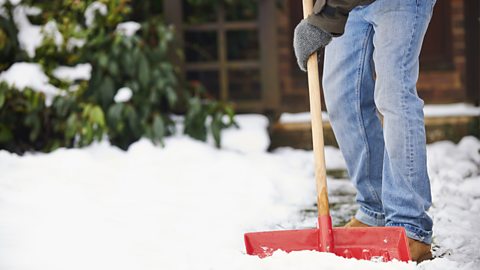Types of houses
People might want to know more about the type of house you live in.
Beschreib dein Haus.– Describe your house.
Wie ist dein Haus?– What's your house like?
Question
Match up these words that describe different sorts of housing.
| German | English |
| 1. ein Haus | A. a farmhouse |
| 2. ein Reihenhaus | B. a detached house |
| 3. ein Zweifamilienhaus | C. a flat |
| 4. ein Einfamilienhaus | D. a house |
| 5. eine Wohnung | E. a house for two families |
| 6. ein Bungalow | F. a high rise block of flats |
| 7. ein Wohnblock | G. a terraced house |
| 8. ein Hochhaus | H. a block of flats |
| 9. ein Bauernhaus | I. a bungalow |
| German | 1. ein Haus |
|---|---|
| English | A. a farmhouse |
| German | 2. ein Reihenhaus |
|---|---|
| English | B. a detached house |
| German | 3. ein Zweifamilienhaus |
|---|---|
| English | C. a flat |
| German | 4. ein Einfamilienhaus |
|---|---|
| English | D. a house |
| German | 5. eine Wohnung |
|---|---|
| English | E. a house for two families |
| German | 6. ein Bungalow |
|---|---|
| English | F. a high rise block of flats |
| German | 7. ein Wohnblock |
|---|---|
| English | G. a terraced house |
| German | 8. ein Hochhaus |
|---|---|
| English | H. a block of flats |
| German | 9. ein Bauernhaus |
|---|---|
| English | I. a bungalow |
- ein Haus (nt) – D. a house
- ein Reihenhaus (nt) – G. a terraced house
- ein Zweifamilienhaus (nt) – E. a house for two families
- ein Einfamilienhaus (nt) – B. a detached house
- eine Wohnung (f) – C. a flat
- ein Bungalow (m) – I. a bungalow
- ein Wohnblock (m) – H. a block of flats
- ein Hochhaus (nt) – F. a high rise block of flats
- ein Bauernhaus (nt) – A. a farmhouse
When you want to say 'I live in a ...' you do it like this:
ich wohne in einem Wohnblock(m) – I live in a block of flats
ich wohne in einer Wohnung(f) – I live in a flat
ich wohne in einem Reihenhaus(nt) – I live in a terraced house
Did you know?
The German word das Haus is often used to mean 'building' as well as 'house'. This is why many official buildings in German have names like Kulturhaus (cultural centre), Rathaus (town hall) or Stadthaus (city hall, town hall). It does not mean that anyone lives there. The word Gebäude (nt) also means 'building', but never means 'house'.
A two-storey house, with one family living on the ground floor and another family living upstairs is known as ein Zweifamilienhaus – literally 'a house/building for two families'.
In a Wohnblock, there will be often be a Hausmeister (caretaker, literally: master of the house) who keeps communal areas clean, including shovelling snow from the paths before residents leave for work on winter mornings.
